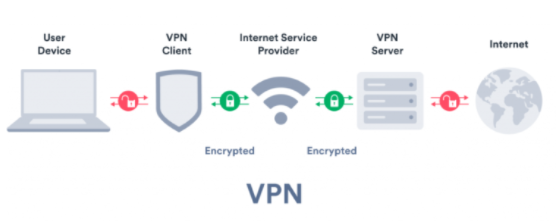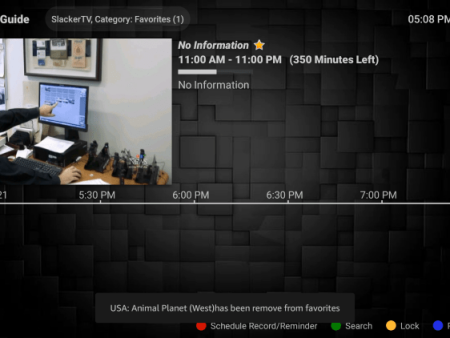IntroductionIs IPTV Legal? This comprehensive guide aims to answer that popular question and provide detailed information about IPTV. IPTV, or Internet Protocol Television, refers to the concept of watching live television through the Internet. This technology has gained popularity over the past several
The Legality of IPTV: An In-depth Explanation of Internet Protocol Television Laws in 2023
Contents
Introduction
Is IPTV Legal? This comprehensive guide aims to answer that popular question and provide detailed information about IPTV. IPTV, or Internet Protocol Television, refers to the concept of watching live television through the Internet. This technology has gained popularity over the past several years, offering viewers an alternative to traditional cable or satellite TV. In this guide, we will delve into the legality of IPTV, discuss the difference between verified and unverified IPTV providers, and provide tips on how to protect yourself while watching IPTV.

What is IPTV?
Definition of IPTV
IPTV stands for Internet Protocol Television, which essentially means streaming live television content over the Internet. It allows viewers to watch their favorite channels and programs on various devices, such as smartphones, tablets, computers, and smart TVs.
Beginner’s Guide to Setting Up IPTV

For those unfamiliar with IPTV, setting it up may seem daunting. However, it is relatively simple. To begin, you need a reliable internet connection and an IPTV service provider. Many providers offer step-by-step guides on how to set up IPTV, making the process user-friendly and accessible to beginners.
Examples of Popular IPTV Providers
Numerous IPTV providers have gained popularity among viewers seeking an alternative to traditional cable or satellite TV. Some well-known examples include YouTube TV, fuboTV, Sling, Philo, and Pluto TV. These providers offer a wide range of channels and content, catering to diverse viewing preferences.
Frustration with Expensive TV Packages
The average household often finds itself frustrated with the high costs of traditional cable or satellite TV packages offered by Internet service providers (ISPs). Many consumers are seeking more affordable alternatives to access their favorite channels without breaking the bank. This increase in demand has contributed to the rising popularity of inexpensive IPTV services.

Concerns about Kodi and Other Streaming Apps
Many individuals have raised questions regarding the legality of using Kodi and other popular streaming apps. These apps are often installed by unlocking a Firestick, which allows users to access a wide range of content. However, it is important to differentiate between the legality of the apps themselves and the content accessed through them. This guide will provide further insights into the legal aspects of IPTV and associated apps.
Is IPTV Legal?
IPTV by Itself is Legal
It is crucial to understand that IPTV by itself is legal. The act of watching live television through the Internet has been ongoing for several years, with thousands of providers offering legitimate services. Verified IPTV providers, such as YouTube TV, Hulu, and fuboTV, operate within the boundaries of the law and have the proper licensing to broadcast the content they offer.

Verified vs. Unverified IPTV Providers
Differentiating between verified and unverified IPTV providers is essential when considering the legality of IPTV services. Verified providers are legally authorized to distribute content and can be found on trusted app stores like Google, Apple, and Amazon. Examples of verified IPTV providers and players include YouTube TV, Hulu, Sling, and Plex Live TV. These platforms ensure compliance with licensing and regulatory requirements.
On the other hand, unverified IPTV providers operate outside the trusted app stores and require users to sideload IPTV APKs to access channels. These providers often offer an extensive range of channels, including international options, pay-per-view events, and sports packages. However, their legality is uncertain, and they may pose security risks to users.
Security Concerns and Legal Issues
While verified IPTV providers prioritize user security and adhere to legal requirements, unverified providers are associated with various concerns. Unverified IPTV providers may engage in copyright infringement, compromising the rights of content creators. Additionally, there have been instances of security vulnerabilities, with user data being sold to third parties or handed over to authorities.

Recent Instances of Security Concerns
In recent years, security concerns related to unverified IPTV providers have made headlines. For instance, services like Beast IPTV, Sapphire Secure, and Mobdro have faced legal actions and shutdowns due to copyright violations and other illegal activities. These incidents highlight the risks associated with using unverified providers and emphasize the importance of using caution while accessing IPTV services.

Legislative Actions Against Illegal Streaming
To combat illegal streaming activities, legislators have taken measures to address the issue. In the United States, a felony streaming bill was approved in late 2020. This legislation categorizes running or operating illegal streaming services as a felony offense. However, it is worth noting that many unverified IPTV providers operate outside the United States, making legal enforcement challenging.
How to Protect Yourself While Watching IPTV
If you choose to use an unverified IPTV provider, it is crucial to take steps to protect your online security and privacy. One effective measure is to use a Virtual Private Network (VPN). A VPN masks your IP address, making it difficult for the IPTV service provider, hackers, and your internet service provider (ISP) to track your activities.
Using a VPN also safeguards your personal data and prevents your ISP from logging your internet activity. This additional layer of security ensures your privacy while streaming content through IPTV services.

Register Anonymously
Another essential precaution is to register for IPTV services anonymously. By avoiding the use of personally identifiable information and providing minimal details during the registration process, you can enhance your privacy and minimize the risks associated with unverified providers.

Conclusion
In summary, IPTV is a legal means of watching live television through the Internet. Verified IPTV providers offer legitimate services, ensuring compliance with licensing requirements and providing a secure viewing experience. On the other hand, unverified providers pose legal and security risks, emphasizing the need for caution while accessing their services.
To protect yourself while watching IPTV, it is recommended to use verified IPTV providers or, if opting for unverified services, to employ a VPN and register anonymously. By taking these precautions, viewers can enjoy a wide range of channels and content while safeguarding their privacy and security.






